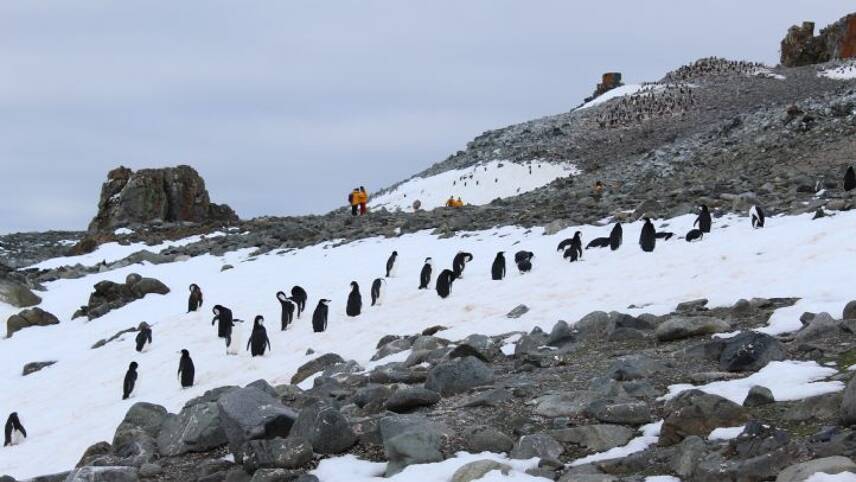Register for free and continue reading
Join our growing army of changemakers and get unlimited access to our premium content

It is totally pristine, not a bottle cap or bit of paper out of place. I was a visitor to one of the biggest resources on Earth and that put things into a new perspective entirely.
Conscious that many of my colleagues and peers were increasingly thinking and talking about sustainability, I hoped this expedition would give me a better understanding of the issues and how they related to the business. Ultimately, I wanted to increase my own knowledge to help build a framework to support us in becoming more sustainable. We are very proud of the commitments DP World has already made around sustainability and have a very clear baseline for them, including measurements and activity taking place globally. But, I hoped to gain a new perspective on them and what our business could do to have an even bigger impact.
My time in Antarctica did much more than that. It opened a new window through which I could view DP World’s role in contributing to environmental change. As an international business, employing people and working in communities all over the world, we can and do have a global impact which we can leverage to create positive change.
It became clear to me the moral and business case to embrace sustainability and a reduction in energy use go hand in hand. We cannot operate in communities where we are not welcome. We must be a steward in those communities, providing real value which can only happen through a conscious and proactive focus on sustainability. More broadly, the results of climate change, like rising sea levels, impact us directly. We simply can’t ignore them – we are currently putting in place infrastructure, such as new port developments, which aim to be there in 50 or 100 years’ time. Even small rises in sea levels have an impact on these projects.
I came away from the expedition with two clear ideas about the ways we can help reduce the energy being used. Firstly, my aim is to focus on reducing the energy output per unit of movement. This can be done through becoming ever more efficient while also considering how clean the energy we are using is: promoting clean energy should become core to our operations.
So, while running a new port predominately on diesel is the cheapest option, this is only true in the short-term. When considerations are longer term, using renewable solutions means an overall reduction in cost.
The second way we can help is to consider the methods by which we make efficient and clean energy use possible: through innovation and technology. This is a cornerstone of our business today. Thinking big and aiming for the best outcomes is the only way we can tackle issues as vast and daunting as climate change.
Action on these areas is also most successful when done collaboratively. It is my hope we can work with our own supply chains and peers to innovate solutions. We are just a part of the puzzle of global logistics, and eventually, these practices must spread across the whole chain. Our role should be to show the urgency of these issues and the need for action. But, also make it possible for our end clients to find and prioritise likeminded suppliers, leading to better collaboration and, ultimately, new business opportunities.
My role is to continue to have these discussions wherever I can: in the board room, with suppliers, with potential clients. I am tasked to deliver efficiency, and revenue but sustainability and the value this can add to the bottom line is also now part of my agenda.
Forcing a dialogue is the only way we can begin to persuade people who do not think in the same way about these issues. In the meantime, we must lead by example and show the real impact that reducing carbon emissions can have.
Matthew Leech is the chief operating officer for ports and terminals at DP World



Please login or Register to leave a comment.